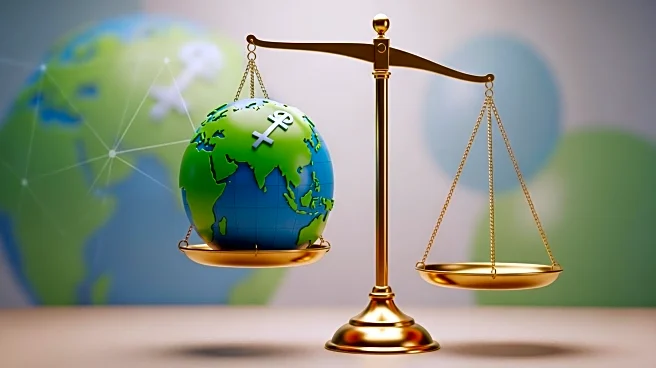What is the story about?
What's Happening?
The International Monetary Fund (IMF) is restructuring its climate change and gender units following criticism from Treasury Secretary Scott Bessent. The changes will integrate these units into the IMF's macro-financial and structural policies division. Bessent criticized the IMF and the World Bank for focusing on climate change and gender issues, which he described as 'mission creep' away from their core economic stability roles. The restructuring aims to refocus the IMF's efforts on macroeconomic issues, aligning with the priorities of its largest shareholder, the United States.
Why It's Important?
The restructuring of the IMF's climate and gender units reflects a shift in focus towards traditional economic roles, potentially impacting global efforts to address climate change and gender inequality. Critics argue that the IMF's involvement in these areas undermines its effectiveness in stabilizing economies. The move may influence the policies of other international financial institutions, as the U.S. holds significant sway in the IMF's decision-making process. This change could lead to reduced emphasis on climate and gender initiatives within the IMF, affecting global strategies for sustainable development.
What's Next?
The restructuring will be formally approved at the IMF's Fall meetings in October. The integration of climate and gender units into macro-financial policies may lead to changes in the IMF's approach to these issues. Stakeholders, including member countries and advocacy groups, may react to the shift in focus, potentially influencing future IMF policies. The U.S. administration's stance on climate and gender issues will continue to play a crucial role in shaping the IMF's priorities and actions.

















